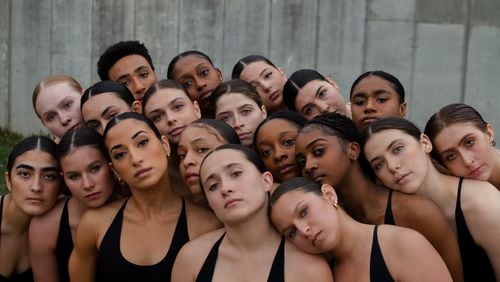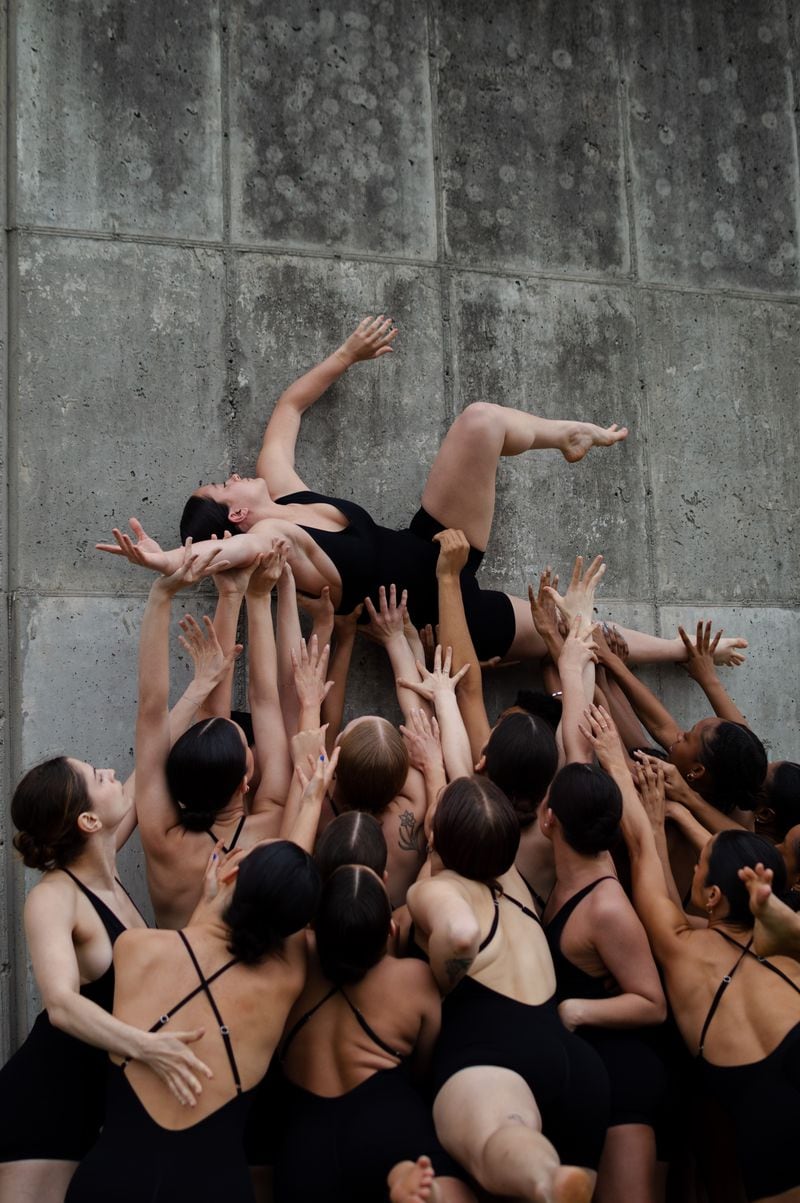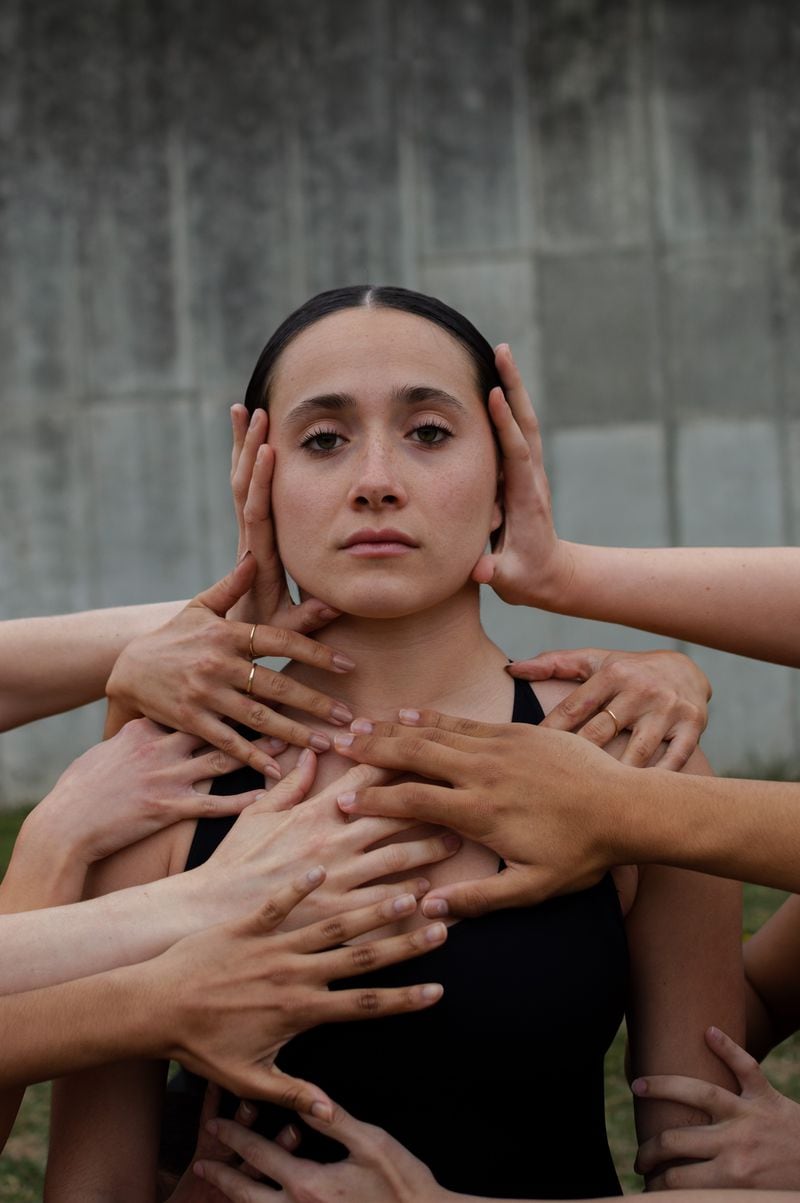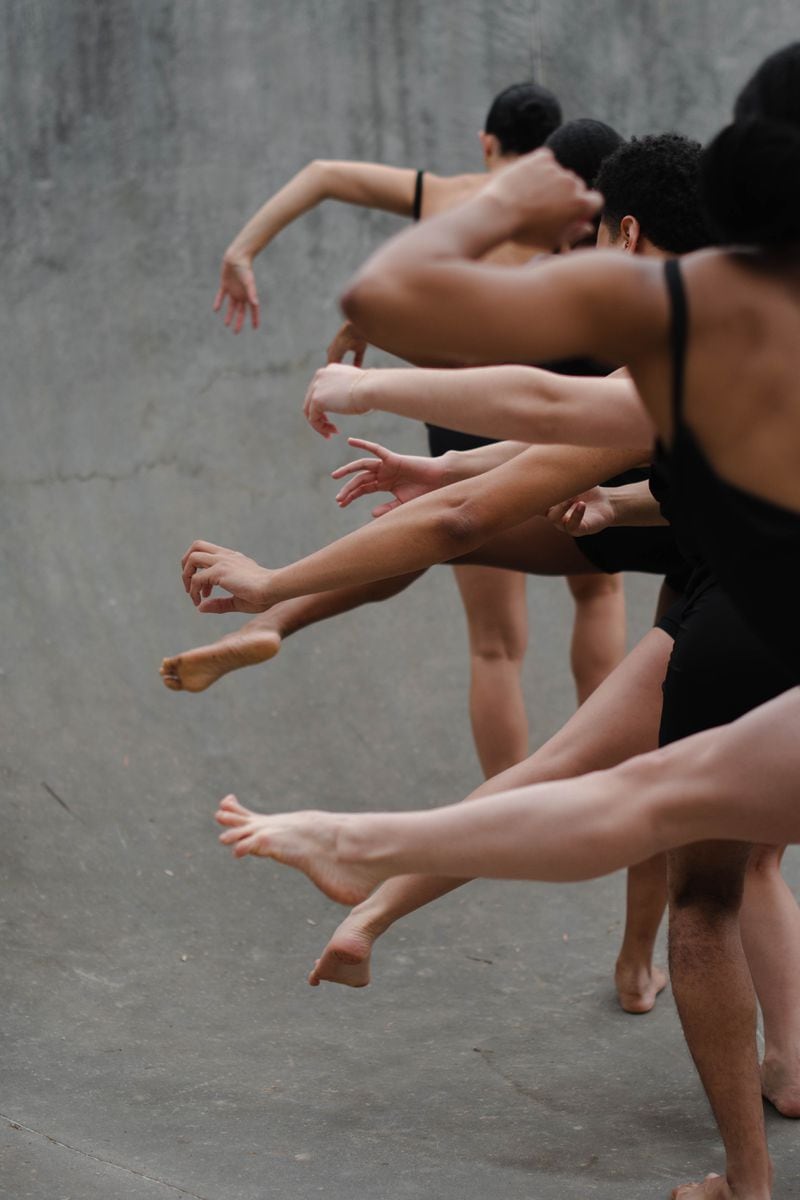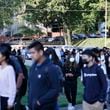This story was originally published by ArtsATL.
Atlanta-based choreographer Angelita Itzanami Andrade spent last fall in a three-month scholarship residency in Spain with Madrid-based Descalzinha Danza. Though she knew the move would push her beyond her personal and professional comfort zones, Itzanami Andrade said she was nonetheless surprised by how the experience contributed to her evolving identity as a Mexican-American Latina artist.
When ArtsATL caught up with her in the studio recently, she and her company, SOMOS, were rehearsing for their second season performance, ”veintetrés,” which will premiere on May 4 at the Kennesaw State University Dance Theater (Marietta campus).
“As I was preparing to leave Atlanta, I was deeply aware the entire time that, even though I speak the language, Spain is not my homeland,” she said. “I expected to feel like an outsider because I am Mexican.” She said she felt her difference immediately as she adapted to the language used in the studio.
Credit: Photo by Darvensky Louis
Credit: Photo by Darvensky Louis
Unlike some Mexican-American households, where children grow up speaking one language or the other, she recalled, she grew up speaking both Spanish and English. “I felt like I was good at speaking Spanish. What I learned,” she said, laughing, “is that I am good at speaking Spanglish.”
The unexpected insight, however, came from realizing that the difference she felt was as much due to being from the United States as it was due to her Mexican heritage.
In the United States, she is more aware of herself as a Latina of Mexican descent. In Spain, she felt more American, and that is how people she met related to her. They were intrigued by her experience and, for her part, she found a renewed sense of the United States — and Atlanta — as home.
Itzanami Andrade said she connected strongly during her time in Madrid with a dancer from the Canary Islands. While the two grew up in geographically distant and culturally distinct locales, they shared the lived experience of having a hybrid identity shaped by a blend of indigenous culture, Spanish and British imperialism, democratic revolution and the shameful, enduring legacy of slavery.
Credit: Photo by Darvensky Louis
Credit: Photo by Darvensky Louis
Artistically, Itzanami Andrade discovered how much ballet continues to influence her work as a contemporary dancer and choreographer. A graduate of Kennesaw State University’s dance program, she has a strong foundation in Gaga-influenced technique and improvisational methods. Working with the teaching artists in Madrid, she learned to be more grounded, she said. “As a dancer, I like to live up in la-la land, on my toes, reaching overhead. At Descalzinha Danza, we focused so much on floor work and acrobatics, like handstands and head spins. That was new and a little intimidating.”
The choreographers and dancers hailed from across Europe and the Americas. At first, Itzanami Andrade said, she felt she was the only one for whom the faculty’s choreographic approach, one grounded in deep understanding of human anatomy and the physics of dance, was something new.
“In partnering work, for example, there was a sense of the best, most efficient way of doing something,” she explained. “It was an understanding of where to grasp your partner and what muscles to use for maximum force with minimum effort.”
Though she said she struggled initially, she quickly became more comfortable with the language and acclimated to the technique. She was also able to draw upon her own strengths to bring something new into the process.
For example, she said the European dancers were particularly good at using methods drawn from theater to convey humor and sarcasm. She put those techniques to different use, finding they were equally helpful for creating gestural vocabularies of rage, grief and sadness.
Itzanami Andrade founded SOMOS in 2023 to commemorate the life of her cousin, Fabricio Torres, whose untimely death at 22 left her swimming in a sea of grief and doubt. With eight dancers, she translated her devastating loss into a beautiful August debut in which raw, difficult images of isolation and collapse melded with moments of tenderness and laugh-out-loud humor, cohering into a hopeful vision of reconciliation and healing.
“Somos” translates from Spanish as “we are.” Itzanami Andrade said the “we” includes her as choreographer, the dancers and the deceased loved-ones and ancestors who preceded them. “Energy cannot be created or destroyed,” she explained. “When someone passes, whatever spirit or energy animated them continues. We are still creating with and using everything that came before.”
Credit: Photo by Christina J. Massad
Credit: Photo by Christina J. Massad
Itzanami Andrade also dedicates her latest work, ”veintetrés,” to Torres, and said it emerged from her exploration of what remains after death. The title, which translates to “23,” refers to 2023, the year in which Torres died, the birthday he will never celebrate and Itzanami Andrade’s own current age. She said it plays with the idea that, depending on one’s perspective, a year can feel like a split second or an eternity and acknowledges that, even though Torres’ physical being ended at 22, “there’s still more of his life to be lived through what he inspires.”
According to Itzanami Andrade, “veintitrés” was nació, born in Spain,” and she returned to Atlanta intending to develop it as a solo. Creating alone, however, brought her grief to the surface too keenly. “So I thought, let’s hit pause on the solo and get some other dancers in here for a SOMOS season two.”
The result is an evening-length work for an ensemble of 19 dancers. ArtsATL observed a run-through of two sections — totaling about 40 minutes of material — in which the time of human lives measured in minutes and days seemed to contrast with geologic or cultural time measured in centuries and eons.
Itzanami Andrade creates by giving dancers mini assignments or scripts — something like, move from here to there in 10 counts, keeping your left foot in contact with the floor at all times, or on count one you lose something and on count 16 you find it — from which the shared vocabulary of the piece evolves.
Her new attention to floor work was evident during rehearsal in dancer Frisco Gallien’s inversions, headstands in which her legs extended and twined sinuously over her stable heart-center, and the controlled, slow-motion cartwheels and walk-overs executed by some of the other dancers.
Asked what might be next for SOMOS and herself, Itzanami Andrade said some of the yearning expressed in “veintitrés” are for a closer integration of her Mexican-American heritage and her identity as an artist. That yearning will inform the work she undertakes as one of the inaugural recipients of a DanceATL Engaging Atlanta Fellowship. The fellowship is an NEA-funded initiative that, in the words of the Atlanta nonprofit that fosters the dance community’s growth, was launched “to create a more equitable, inclusive and accessible community of dance artists, educators and audiences.”
DANCE PREVIEW
“veintitrés”
Performed by SOMOS. 8 p.m. May 4 at the Kennesaw State University Dance Theater (Marietta campus). General admission, $25. VIP, $35. Students, $15. 860 Rossbacher Way, Marietta. somosdance.co
::
Robin Wharton studied dance at the School of American Ballet and the Pacific Northwest Ballet School. As an undergraduate at Tulane University in New Orleans, she was a member of the Newcomb Dance Company. In addition to a bachelor of arts in English from Tulane, Robin holds a law degree and a Ph.D. in English, both from the University of Georgia.
Credit: ArtsATL
Credit: ArtsATL
MEET OUR PARTNER
ArtsATL (artsatl.org) is a nonprofit organization that plays a critical role in educating and informing audiences about metro Atlanta’s arts and culture. ArtsATL, founded in 2009, helps build a sustainable arts community contributing to the economic and cultural health of the city.
If you have any questions about this partnership or others, please contact Senior Manager of Partnerships Nicole Williams at nicole.williams@ajc.com.
About the Author
